Compiling Convincing Evidence: How You Can Help Your Nursing Home Negligence Attorney Win Your Case
Compiling Convincing Evidence: How You Can Help Your Nursing Home Negligence Attorney Win Your Case
Introduction:
When a loved one requires the care of a nursing home or long-term care facility, we trust that they will receive the highest level of attention and support. Unfortunately, cases of nursing home neglect and abuse occur much too frequently, leaving families devastated and in pursuit of answers and accountability. If you suspect that you or a loved one has suffered due to negligence or abuse in a nursing home, it is crucial to consult with a nursing home negligence attorney. Not only can a legal claim help compensate for the harms and losses sustained, a claim can serve to help ensure that what happened to you or your loved one will not happen again. (See: Why Bother Suing Negligent Nursing Homes.)
To help build a strong case, gathering relevant evidence is essential. In this article, we will explore some essential types of evidence to collect that may assist your attorney, including medical records, billing records, health insurance or Medicare card copies, personal notes, chronologies, or diaries, communications with the long-term care ombudsman and state regulatory body, key witness information, and copies of the death certificate and/or autopsy report, if applicable.
It is imperative that you seek out an attorney who is well qualified and experienced in handling nursing home neglect and abuse cases. It is also important to make sure you do not wait too long to seek legal accountability, as there are deadlines that may apply. (See: How Long Do You Have To File a Lawsuit Against a Nursing Home in Indiana.) Once you have found a qualified nursing home attorney, you should try to make sure you can gather as many of the following documents as you can:
1. Admission Packet and Related Documents:
Obtain a complete copy of the admission packet, including the admission agreement, addendums, and any related documents signed upon your loved one’s entry into the facility. Include any marketing brochures, business cards, forms, etc. that you may have been given during the admission process.
2. Medical Records and Documentations:
Bring a copy of all medical records and documentation you have related to your loved one’s care and treatment. This includes hospital records, physician notes, medication charts, nursing notes, incident or accident reports, and any correspondence received from healthcare providers. Not only may these records provide crucial insights into your loved one’s condition, administered treatments, and any signs of neglect or abuse, it is not uncommon for nursing homes to falsify records after an adverse event — particularly when a claim has been filed. Records you received can be compared with records received from the facility after the claim has been filed to determine whether any edits or falsifications are evident.
3. Photographs and Videos:
Bring any photos, videos or voicemails you may have. It is important to capture visual evidence of any visible injuries, unsanitary conditions, or inadequate facilities through photographs or videos. If your loved one suffered a physical injury, such as a pressure sore, it is vital that the wounds be color photographed — preferably at different points in time to show the progression of the injury. If improper equipment caused harm, it is important to photograph the equipment that was used. A photograph of the patient’s room from different angles can also be important. These records serve as compelling evidence to support your claim. Importantly, however, you should not take photographs of other patients without proper consent and approval.
4. Emails, Text Messages, Social Media Correspondence, and Letters:
Gather electronic communication records, including emails, text messages, voicemails and direct messages from social media platforms, that pertain to your loved one’s care. Additionally, gather any written correspondence received from the facility, including letters, memos, or notices. These records can reveal important discussions, concerns, or requests that contribute to your case. You should make sure that these communications are preserved so that they can be reviewed and utilized in pursuing the claim.
5. Personal Notes, Chronologies, or Diaries:
Bring any personal notes, chronologies, or diaries that document the timeline of events at issue. These records provide important real-time accounts of incidents, observations, conversations, or any other relevant information related to your loved one’s care and treatment. They can help establish a timeline of events and serve to refute the nursing home’s version of events.
6. Medical Billing Records and Insurance/Medicare Card:
Collect related medical billing records, including invoices, statements, or receipts. These records provide documentation of the financial transactions associated with your loved one’s care. Additionally, make a copy of the health insurance card or Medicare card used for payment. This serves as evidence of the financial relationship between the facility and the payment source and may be important to ascertain whether there are any liens associated with the claim that may need to be considered.
7. Long-Term Care Ombudsman Communications:
Include any relevant information or documentation related to your communications with the facility’s long-term care ombudsman. The long-term care ombudsman serves as an advocate for residents of nursing homes and long-term care facilities, addressing concerns and ensuring residents’ rights are protected. Communications with the ombudsman can provide additional insight into the facility’s actions and response to reported issues.
8. State Regulatory Body Communications:
Bring any information or documents pertaining to any communications with the state regulatory body responsible for overseeing nursing homes. This includes any complaints filed regarding the care provided or notifications received indicating that your loved one’s care was reviewed as part of an annual survey or an investigation complaint. Communications with the regulatory body can provide valuable evidence to support your case
9. Key Witness Information:
Compile a list of names and contact numbers for any current or former staff members or fellow residents (or their family members) who may serve as witnesses. These individuals can provide firsthand accounts, observations, or experiences related to the negligence or abuse in the nursing home. Their testimony can strengthen your case and provide additional credibility to your claims.
10. Death Certificate and/or Autopsy Report:
If your loved one passed away as a result of nursing home neglect, bring a copy of the death certificate and/or autopsy report, if available. These documents can provide valuable information regarding the cause and circumstances of their death, linking it to the negligence or abuse suffered in the nursing home. They can strengthen your claim and support the pursuit of justice on behalf of your loved one.
Conclusion:
Collecting compelling evidence is crucial when pursuing a nursing home negligence case. These records provide comprehensive documentation of the negligence or abuse your loved one endured. While it is not necessary to have all or even any of these items to pursue a nursing home neglect/abuse case, these records may be of great assistance to your attorney in putting your case together. It allows your attorney to assess the merits of your claim, strategize an effective legal approach, and pursue justice on behalf of your loved one.
While the process may feel overwhelming, collecting evidence and seeking legal representation are critical steps towards holding those responsible accountable for the harm caused. Your loved one deserves justice, and by compiling compelling evidence, you are taking a significant stride towards achieving that goal.
 Jeff Powless is an attorney and the author of the 2017 book, Abuses and Excuses: How To Hold Bad Nursing Homes Accountable. Abuses and Excuses breaks new ground in helping patients and families hold bad nursing homes accountable, sharing a wealth of insider strategies and insights. It’s an eye-opening account of corporate greed, acts of neglect and abuse, an insidious industry culture of cover-up, and the actual harm that inevitably befalls vulnerable nursing home patients all across the country with shocking frequency.
Jeff Powless is an attorney and the author of the 2017 book, Abuses and Excuses: How To Hold Bad Nursing Homes Accountable. Abuses and Excuses breaks new ground in helping patients and families hold bad nursing homes accountable, sharing a wealth of insider strategies and insights. It’s an eye-opening account of corporate greed, acts of neglect and abuse, an insidious industry culture of cover-up, and the actual harm that inevitably befalls vulnerable nursing home patients all across the country with shocking frequency.
